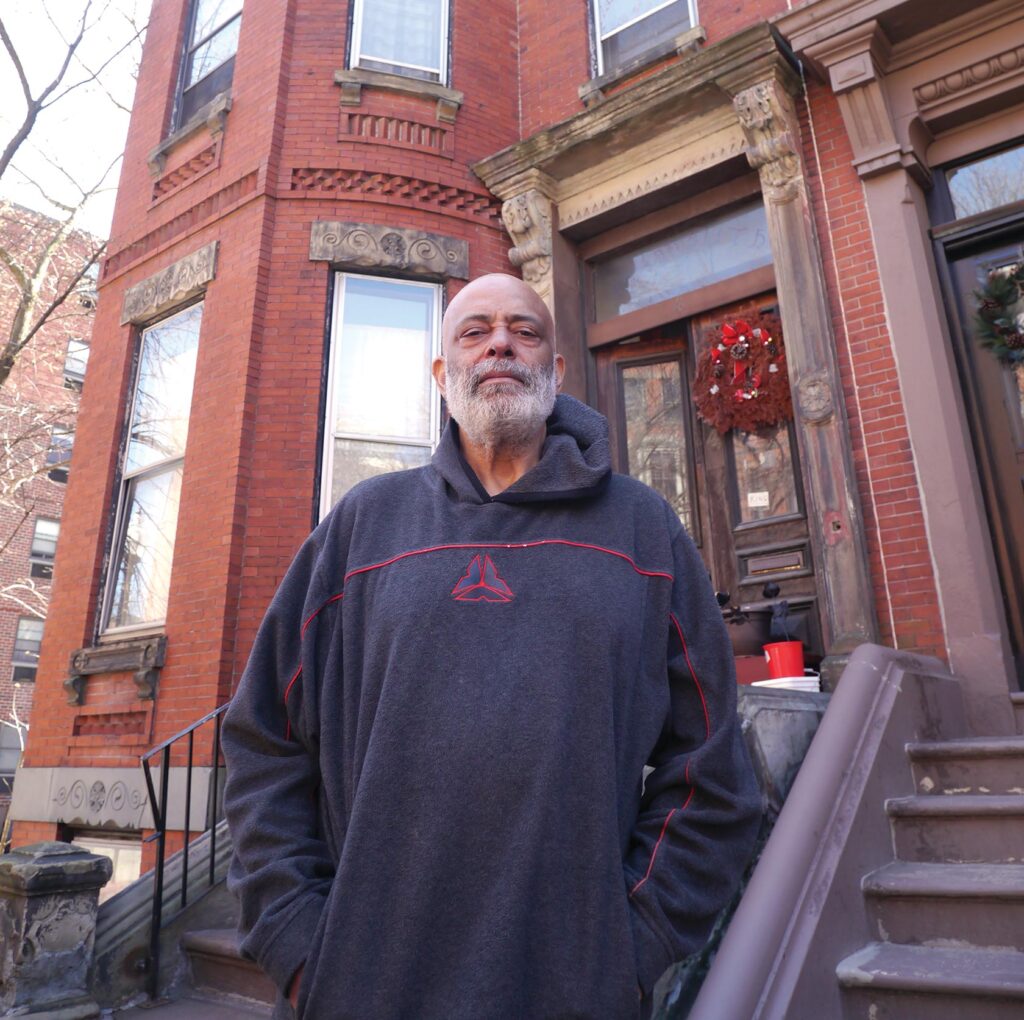
For Mel King, childhood in the New York Streets neighborhood of the South End was idyllic — swimming in the Fort Point channel, collecting coal in the nearby rail yards for the stove at home, visiting the bakeries and fruit stands.
“That was the best place for him and my mother,” remembers King’s daughter Pam. “Anybody who grew up in that neighborhood at that same time, they didn’t see it as a slum. There were churches, schools — everything you needed was there.”
After the city declared the New York Streets section a slum and leveled the homes and businesses there in the 1950s, King spent much of his life fighting the city’s wrecking ball and the forces of gentrification that over the decades forced out of the South End thousands of Black, Latino and working-class white families.
Pam and Michael, two of Mel and Joyce King’s six children, spoke to the Banner about their father’s legacy and their lives growing up in the South End during a time of profound changes.
Just across Yarmouth Street from the brownstone townhouse where Michael still lives with his mother and where Mel King hosted his famous Sunday morning brunches with community activists, the low-rise brick buildings of the Tent City Development bear witness to King’s push to preserve community.
On that site, the city demolished a row of apartment buildings, displacing dozens of families, as part of its plan to create a parking lot for commuters working in the insurance industry and other businesses located in Copley Square.
Mel King led protests that stopped the bulldozers clearing the land, then staged a “tent city” protest during which he and other activists occupied the parcel of land until city officials backed off their plans for the parking lot.
“The city didn’t care about the community,” Pam King said. “My father talked about the environmental impacts of the garage, of bringing all the cars and pollution into the neighborhood.”
It took 20 years, but a nonprofit was able to build a mixed-income, 269-unit complex on the site.
Tent City was one of several major developments where King helped tenants fight plans that would have displaced them from the neighborhood. Other so-called slum clearance projects King helped tenants fight include Castle Square and the area now occupied by the Villa Victoria housing development.
Michael King said his father’s willingness to help other neighborhood residents fight the displacement schemes the city engaged in during the 1960s and ’70s stemmed from his experience growing up in the South End.
“He always made references to the New York Streets area,” he said. “It informed a lot of his outlook. People there looked out for each other. If someone came and knocked on your door, you helped them.”
Michael said King’s own family’s experience with displacement from the New York Streets area —now home to the Ink Block and other luxury apartment complexes — led him to purchase the house on Yarmouth Street where the King children were able to live into adulthood. There, the King children helped entertain the thinkers and activists who frequented the home.
While Mel King remained active in politics over the decades, his children participated only as much as they saw fit.
“I wasn’t as involved on the mayoral campaign as other folks,” Pam King said. “I was working for the Roxbury Boys and Girls Club,” she said. “I didn’t want to be told what to do.”
Campaign advisors working on King’s 1983 mayoral bid came up with suggestions on what role the King children should play, but King listened to Pam when she said she didn’t want a role. In the end, she held a couple of fundraisers and knocked a few doors for her father.
Michael helped out in the campaign office, distributed leaflets and worked hands-on with the campaign. Both siblings recall the impact their father’s campaign had on the city.
“People got a lot of satisfaction that he made it past the preliminary,” he said. “It was a positive sign for communities of color.”
But along the way, Michael King said, there were a lot of naysayers.
“There were people who said, ‘Boston ain’t ready for a Black mayor.’ ‘Black people can’t get it together,’” he recalled. “People did not feel confident.”
Over the years, the South End changed radically. One by one, the other Black families moved out of the brownstones on Yarmouth Street. While affordable housing kept many Black, Latino and Chinese American families in the neighborhood, much of the middle class left as condo prices soared.
Michael remains at 4 Yarmouth Street, while Pam moved to Jamaica Plain years ago, when that neighborhood’s prices were far below those in the South End.
“Most of my friends I grew up with, they couldn’t stay unless they lived with their parents,” she said.
But Michael still sees remnants of the old South End in the affordable housing developments, many of the same ones his father helped fight for.
“People from the old neighborhood are in Methunion Manor and Tent City,” he said. “They wouldn’t be there if it wasn’t for his efforts.”
Through all his activism, Michael King says, his father maintained his faith in the primacy of love.
“It’s one of the things I try to emulate,” he said. “He took the attitude that if we operated with love, there would be more abundance for everyone. In economics, the theories are based on scarcity. He took an alternative view, that we should operate in abundance.”







